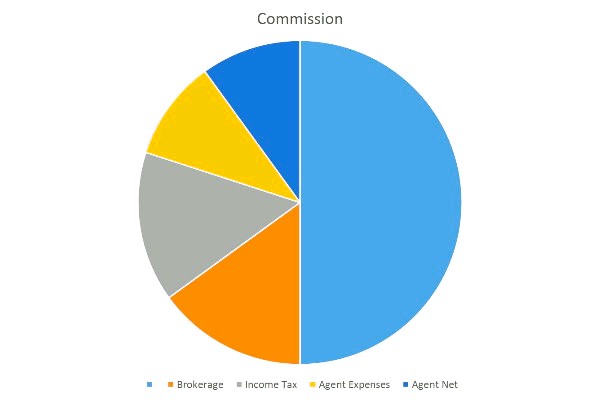Real estate enterprises, akin to any other business, grapple with various expenditures imperative to sustain operations. These include rent, utilities, insurance, and salaries for office staff, excluding real estate agents who operate on a commission-based compensation structure upon successful sales. The quandary lies in the opacity of fee structures, where the total gross amount takes center stage without a nuanced breakdown of its constituent elements. Analogous to purchasing a commodity, consumers are presented with the retail price, leaving the wholesale cost—the price the store paid—shrouded in obscurity.
Consider your own salary (assuming it’s not commission-based). There exists a gross figure, the sum before taxes, and a net figure, the amount deposited in your bank account. The disparity between these figures can be substantial. When asked about your income, which figure holds more significance?
In the realm of real estate, home sellers commonly remit a commission based on the eventual sale price. These figures, determined by individual companies, are influenced by myriad factors, including operational expenses crucial for the provision of real estate services for both buying and selling. Yes, buying incurs costs for individual agents and the company, mirroring the financial outlay associated with marketing and selling.

The illustration below elucidates the breakdown of commissions. Typically, the commission is divided between listing and selling brokerages, with the brokerage retaining a share for expenses, the government claiming a portion for taxes, and the remaining amount allocated to cover the agent’s expenses, which can be considerable. Their net pay emerges from this balance. Why is there a rise in luxury multi-generational homes? Read more in our article.
Additional considerations:
- Real estate agents grapple with ongoing monthly fixed and variable expenses linked to their business and the services rendered to clients. Prolonged durations for a property to sell or for a buyer to make a purchase escalate these expenses, reaching a point where an agent might incur losses.
- Agent expenses encompass marketing, advertising, insurance, professional dues, office outlays, supplies, legal and accounting fees, management charges, professional development courses, utility costs, and vehicle expenses, among others. Fixed expenses alone could easily soar into thousands of dollars monthly, with variable costs layered on top.
- A common scenario involves non-committal buyers engaging an agent to explore homes in a specific area. The agent invests time and money in these services, with no means of recouping expenses if the individual decides not to buy. Such instances result in the agent incurring losses.
- Disparities exist among real estate agents in terms of experience, knowledge, and capability. Just like any other industry, there are stellar agents and subpar ones. Utilizing the services of a top-tier agent without genuine intent to buy or sell may jeopardize their business and deprive the industry of a valuable professional.
On the subject of service, not all agencies or agents deliver equivalent levels or types of service. Full-service, part-time, and so-called “discount” brokerages exhibit variations in service offerings and timelines. The axiom “you get what you pay for” resonates in business, as in life.
If you’re contemplating the purchase or sale of a luxury home in the Comox Valley, enlist the expertise of Brett Cairns from REMAX Ocean Pacific Realty for this pivotal transaction.
Brett Cairns, a Realtor with REMAX Ocean Pacific Realty, consistently goes Above & Beyond to meet clients’ real estate needs. Operating from the town of Comox in the Comox Valley region of Vancouver Island, his commitment to informing and updating the public on the local luxury homes market is evident.
For comprehensive details on relocating to this splendid part of British Columbia, kindly reach Link to Wikipedia. Your quality of life might express gratitude.
